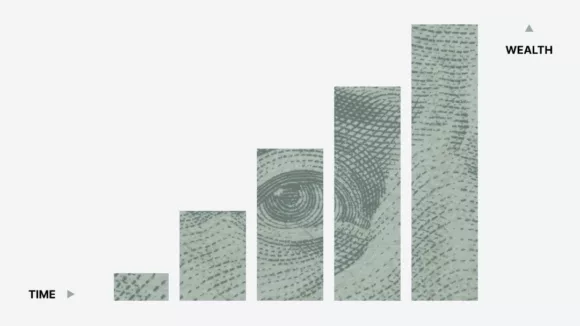
Property Investment
Property investment NZ – The epic guide to property investment
Explore the latest in NZ property investment with our comprehensive 2026 guide. Gain insights into strategies and detailed steps for success.
Property Investment
7 min read

Author: Ed McKnight
Resident Economist, with a GradDipEcon and over five years at Opes Partners, is a trusted contributor to NZ Property Investor, Informed Investor, Stuff, Business Desk, and OneRoof.
Reviewed by: Laine Moger
Journalist and Property Educator, holds a Bachelor of Communication (Honours) from Massey University.
Despite the fact that NZ’s median property price increased 3.7x over the last 20 years, some investors are still cynical of market-made capital gains.
That’s strange. The median property owner made an estimated $445,000 since the turn of the century (Jan 2000 – Jan 2020).
These aren’t just gains on paper. This is real money that property owners have made.
So why do some people in property investment circles say: "Ignore market-made capital gains because you can’t control them"?
In part, they’re right.
None of us can control the market …

Let’s look at the numbers and see. There are three ways to make money in real estate:
Which of these will deliver the highest return to you over 10 years?
Let’s start with Cashflow. A positively geared property, like an apartment in Wellington, may net you $50 a week (before tax) in the first year, assuming you buy it new, borrow at 100% and use an interest-only mortgage.
That means in the first year you would earn $2,600 from the property. Over 10 years, and accounting for increases in rent, that might total $31,216 (assuming profit increases by 4% a year).
That’s good, but it’s not going to change your life.
Now, let’s talk about instant equity.
You might buy a property for $500,000, spend $50,000 doing it up and then revalue it at $600,000.
From that you will have made $50,000 in instant equity. Still, nothing to be sniffed at.
Now, let’s examine market-made capital gains. Say you bought a property for $500,000 and it increases in value at 5% per year.
In 10 years’ time that property would be worth $814,447. That’s $314,447 worth of gains.

Bear in mind this is a conservative increase since the median NZ house price actually increased at 5.9% over the last 10 years.
When you compare the 3 options:
What does that all mean?
You can make money through cashflow and instant equity. But, the greatest opportunity to make money is from long term increases in the value of your properties.
Of course, these numbers are back-of-the-envelope and will be different for each property you look at. Some will have higher cashflow or more opportunity for instance equity or capital gain. What stays the same is that the capital gains cannot be ignored.
But, just because you can’t control the market, doesn’t mean you should ignore it and not have it as a big part of your strategy.
And while you cannot control the market, you can monitor and predict parts of it to make a more informed decision.
That’s exactly what happens in the share market. If I buy a share in Z Energy (the petrol company), I can’t call their CEO Mike Bennetts and tell him what I think he should be doing to increase the share price.
But what you can do is evaluate the market, see whether you like Z’s market position, and ultimately decide if you want to invest or not.
The critical step in that process is determining whether Z has got the right position and fundamentals to deliver increases in the stock price.
That’s the same with property. To be a successful property investor, you’ve got to determine whether the property is in the right position and has the right fundamentals to go up in value over the long term.

The usual answer is supply and demand.
Housing supply is relatively easy to track and is more stable. We can track the number of new dwelling consents to estimate how quickly the number of houses in the country is increasing, and it increases at a relatively stable rate.
But housing demand is more tricky and sporadic.
House prices go up and down because of this dynamic – supply is relatively stable and increases slowly. But demand can increase rapidly, leading to house price inflation in a short timeframe.
So, what influences demand in the housing market? And what should investors look for?
Former BNZ Chief Economist Tony Alexander recently appeared on the Property Academy Podcast discussing this issue.
Tony stressed that you must focus on large long-term trends, rather than small short-term blips. As Tony says: “Short-term things, they can come and they can go.”
Here are the critical points he suggests investors look for:

All of the following increase housing demand:
These factors are tough to predict, and we have the smallest ability to forecast changes in these factors. We should, therefore, spend more time looking at the other factors that influence demand.
This is the number of new people immigrating to New Zealand v.s. the number of people leaving.
Usually net migration would not have a large impact on a country’s property market. But because New Zealand’s population is so small, a tiny increase in the number of net migrants (more people coming, or fewer people leaving) will lead to large percentage changes in our population and therefore housing demand.
For instance, over the last year New Zealand had an increase of 0.9% in population through net migration, or 45,000 people. The average household size is roughly 2.7 people per household, so that means 16,667 additional houses are needed above and beyond our organic population growth (births – deaths).
As property investors we can look at where these people are moving to and therefore get an understanding of how they will impact the market.
For instance, we know that roughly 50% of new migrants move to Auckland, and the rest tend to favour the main urban centres. That means that if net migration is predicted to be high, it will have a disproportionate effect on the property markets of Auckland and the other big cities, rather than the rest of the country (all other things being equal).

Next, we have the broader economy. These factors increase housing demand:
You have more ability to predict these macro-economic changes than changes in the financial environment.
The average weekly professional wage steadily increased by 28.9% for men and 35.3% for women over the last 10 years.
This equates to 2.6-3.1% compounding annual growth. As wages increase, workers can borrow more, which helps keep house prices buoyant.
By far, you can most closely track movements in local areas. All of these factors will increase housing demand:
While you can't control these factors, you can monitor and predict them, which allows you to make an informed decision about where you invest.
The key is to have clarity about the factors you can forecast and those you can't.
Resident Economist, with a GradDipEcon and over five years at Opes Partners, is a trusted contributor to NZ Property Investor, Informed Investor, Stuff, Business Desk, and OneRoof.
Ed, our Resident Economist, is equipped with a GradDipEcon, a GradCertStratMgmt, BMus, and over five years of experience as Opes Partners' economist. His expertise in economics has led him to contribute articles to reputable publications like NZ Property Investor, Informed Investor, OneRoof, Stuff, and Business Desk. You might have also seen him share his insights on television programs such as The Project and Breakfast.
This article is for your general information. It’s not financial advice. See here for details about our Financial Advice Provider Disclosure. So Opes isn’t telling you what to do with your own money.
We’ve made every effort to make sure the information is accurate. But we occasionally get the odd fact wrong. Make sure you do your own research or talk to a financial adviser before making any investment decisions.
You might like to use us or another financial adviser